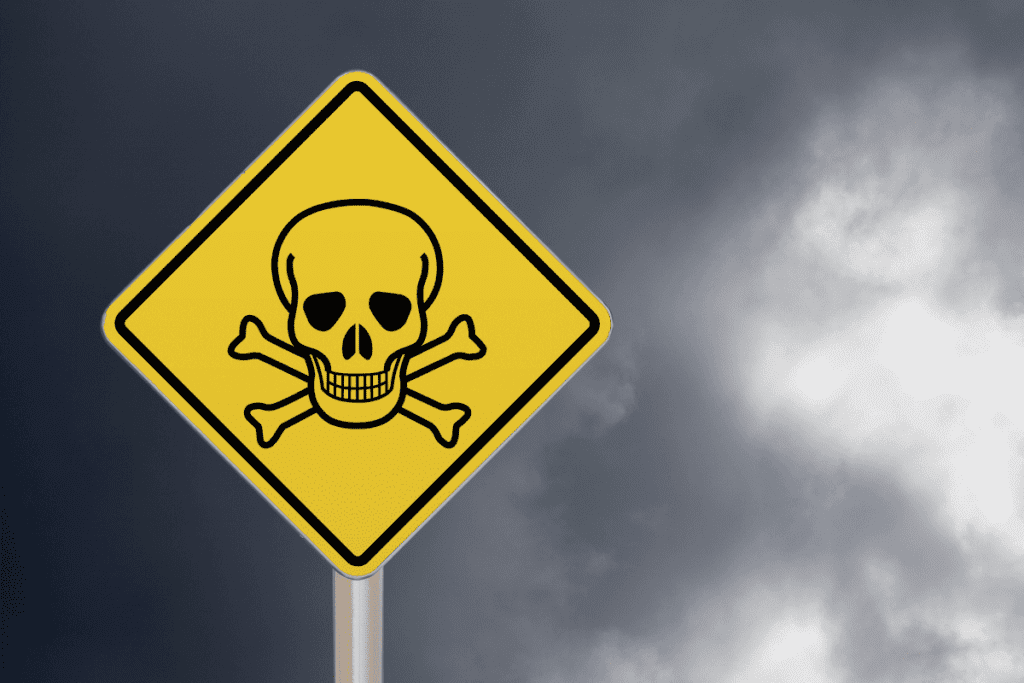ENVIRONMENTAL DEFENCE AND THE MIND THE STORE CAMPAIGN
Couche-Tard, Metro, Sobeys, Tim Hortons, and Burger King receive an F grade for failing to take action on toxic chemicals
Toronto, Ont. — A new report reveals that nearly 70 percent of North America’s largest retailers evaluated have improved their toxic chemical safety policies to help protect customers from harmful chemicals and plastics in products and packaging. Unfortunately, Canadian-based retailers continue to fall behind U.S. companies when it comes to their chemical policies.
The fifth annual Who’s Minding the Store? retailer report card, released today, evaluated and graded the chemical policies and practices of 50 retail chains with more than 200,000 stores across the U.S. and Canada.
In the largest-ever analysis of its kind, the report finds that companies are implementing more comprehensive chemical policies and achieving greater reductions over the last five years. Unfortunately, four of the six Canadian-owned companies earned a failing grade for their inaction to properly manage chemical risks: Alimentation Couche-Tard (Circle-K, Mac’s, Couche-Tard), Metro, Sobeys, and Restaurants Brand International (Burger King, Popeyes, and Tim Hortons).
“Evidence tells us that chemicals like PFAS in food packaging and bisphenols on receipts are dangerous. Fortunately many retailers are rising to the challenge by taking steps to make products safer,” says Tim Gray, executive director at Environmental Defence. “Market-leading Canadian retailers like Couche-Tard, Metro, Sobeys, and Tim Hortons, have no excuse for their inaction to protect customers, workers and the environment from toxics.”
Four North American retailers lead the pack by receiving the highest grades for their work to protect customers from toxic chemicals in products and packaging: Apple (A+), Target (A+), Whole Foods Market (A) and Sephora (A).
Meanwhile, two Canadian companies received mediocre grades for their toxics policies. Loblaw Companies Ltd. (C), the parent company of Loblaws, No Frills, Real Canadian Superstore, Shoppers Drug Mart, T&T, and more, introduced a CSR target to transition to phenol-free (BPA and BPS-free) receipts by the end of this year. The company also previously completed the removal of triclosan and phthalates from its private-brand household and personal care products. However, to join the leaderboard, Loblaw should replace key harmful chemicals from beauty products of environmental justice concern, expand its policy on phthalates to other products and eliminate PFAS in food packaging.
Additionally, Canadian Tire (D), which also includes Mark’s and Sport Chek, received points for eliminating six phthalates (DEHP, DBP, BBP, DINP, DIDP, DNOP) from certain food contact products (e.g. kitchenware and reusable food containers, but not single-use food packaging); removed heavy metals from children’s, food contact and cosmetics products; eliminated volatile organic compounds from paints; and is completing its transition away from brominated flame retardants in all products. The company can improve its grade by eliminating all PFAS chemicals from household products and phasing out bisphenol-coated receipts.
“We applaud retail leaders for stepping up to drive harmful chemicals out of consumer products and packaging,” explains report co-author and Mind the Store campaign director Mike Schade. “Despite a global pandemic and incredibly challenging year, retailers have continued to make substantial progress in reducing and eliminating classes of toxic chemicals like PFAS. Laggards like Canadian-based Burger King should join them.”
In an unprecedented move in the history of the report card, two U.S.-based retailers have now committed to evaluating beauty products marketed to women of color for toxic chemicals found in those types of products, which helps address long-standing racial injustice and health inequity. Target and Rite Aid will specifically screen for toxic chemicals that are often found in these products, such as skin lightening cream and hair straighteners and relaxers. This follows the addition of new criteria in the report that challenges retailers to address this racial justice issue. Whole Foods Market has already banned some of these chemicals of concern (such as hydroquinone) in these products as well.
For a full list of the evaluated companies and their detailed grades, analysis of trends, recommendations, and more, visit RetailerReportCard.com.
-30-
For more information or interview requests, please contact:
Sarah Jamal, Environmental Defence Canada, sjamal@environmentaldefence.ca
ABOUT ENVIRONMENTAL DEFENCE (environmentaldefence.ca): Environmental Defence is a leading Canadian environmental advocacy organization that works with government, industry, and individuals to defend clean water, a safe climate, and healthy communities.
ABOUT THE MIND THE STORE CAMPAIGN: The national Mind the Store campaign, a program of Toxic-Free Future, challenges big retailers to eliminate toxic chemicals and replace them with safer alternatives. The campaign publishes the annual retailer report card that benchmarks and scores major retailers on their safer chemicals policies and implementation programs.





